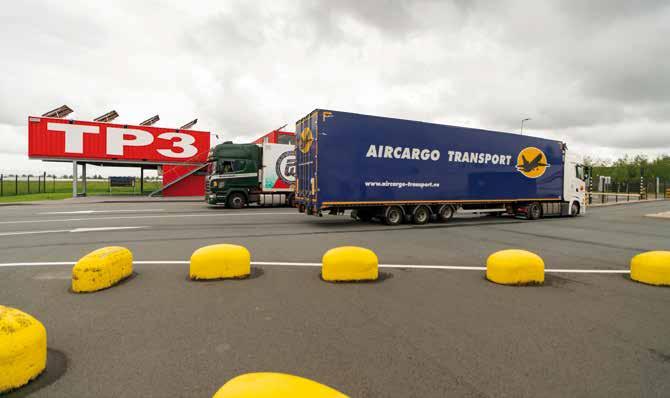
2 minute read
Data: Everyone wins if everyone shares
by Cargomedia
Data
Everyone wins if everyone shares
Advertisement
Since 2020, on average 30% of an airline’s revenue now comes from air cargo. This shift in airline priorities is likely to stay. When passengers start flying again, hopefully soon, the newly added freighter capacity will drop and belly freight will be increasingly relevant.
Air cargo is now a highly valued product, both for the airlines and its customers. It is an asset that needs to be handled with care. We need to manage available capacity to maximize its utility even more than before. We need to ensure the quality of delivery, of the freight transported but also the process of transport itself. Such increased care equates opportunity.
The one thing that can make or break these improvements, is central to all that we do. Data.
It is critical to get transparent access to data about freight. About its current condition, the transport process, the parties involved, the infrastructure, status of trade lanes, and more. Getting such data is hard. The data exists today, but it is locked up in legacy systems, in un-connected databases, in bespoke devices and private networks.
This data needs to be set free, air cargo needs “data sharing”. We need to add standard data connectors, also known as API’s, to all our data in our systems and share with anyone that could use it to improve air cargo transport. That includes airlines themselves – internally – but also forwarders, ground handlers, customs, road transporters, consignees, shippers and so on. Equally important is who we don’t want to share this data with. We must always be in control of our data, known as “data sovereignty”.
The IATA ONE Record data sharing standard encapsulates all of this. It is an API standard that can be used to give access to any type of data in any system. Data is shared via URLs, every piece of data has a unique URL. Data access doesn’t get easier.
This data sharing standard also uses semantic models to describe data. This is a very powerful feature because it assumes that we don’t all speak the same “data language”. Data must cross IT cultures and borders, just as we do in business.
ONE Record uses banking level data security, including authentication and secure identification of known parties and audit trails for data security. Access to specific data can be managed to any level of detail. You can even delegate access to partners, with the permission of the data owner.
Data sharing with ONE Record has been trialed by many companies. CargoHub for example uses it to get more transparent access to flight arrival and departure data for the purpose of effective truck planning. This is a typical example of data sharing: getting access to useful data for the purpose of more efficient process execution.
Everyone wins if everyone shares. Every time we ask the question: “what would you do if you had more data?”, a new win-win digitalization use case is born.
Henk Mulder, Head Digital Cargo, IATA










